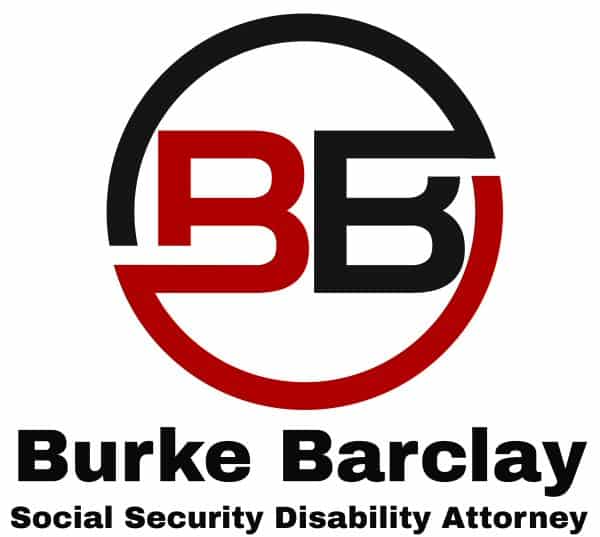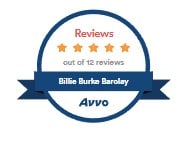Social Security Disability Basics the Difference Between SSDI and SSI Benefits
Social Security Disability Basics
The Difference Between SSDI and SSI Benefits
So this is part of the tutorial series and I have on the website people thinking about following your disability benefits. I think one of the most important places to start is understanding whether or not you can qualify for SSDI or SSI benefits. The terms get mixed together quite a bit and a lot of people state that they need to file for SSI benefits when in reality they may either qualify for both or just one. I’ll layout some scenarios for you where you could be looking at only being able to qualify for SSI that have bits or only being able to qualify for SSDI benefits.
This is really important. So understanding the two of them. First and foremost, SSDI is your Social Security disability insurance. This is what you’ve been paying into the system the entire time you’ve been working. It’s part of your FICA taxes on your paycheck. So it is a safety net managed by the Social Security Administration. That if you become disabled, unable to work, and you fit under the rules that they set up, you are approved.
You can receive disability benefits for two years, three years or for the rest of your life. It just depends on what they deem how long you’re going to be disabled. So SSDI is quite important. It is earned by your work credits. For each quarter that you’re working at, for a person who’s been working consistently 5 out of the last 10 years, you’re going to be able to earn SSDI.
SSI is something totally different. It in itself is welfare. It’s welfare because you didn’t earn it paying into the system, being given to you by the federal government, and since you don’t have work credits to in order to qualify for SSI, there are income limits that you cannot go over or you will not qualify for SSI.
SSI stands for Supplemental Security Income. It is for people that again do not have the part credits to to earn SSDI. They quite possibly could earn SSI, but again, it’s very important to understand you have certain asset limits and you have certain income limits that you cannot go over or you don’t qualify for SSI. SSI can also help those that do have enough work credits for SSDI.
If somebody had a low income paying job, the most they could get from SSD on a monthly disability check is like $400. If the financial requirements are met, could actually kick in and make up the difference. So what are the likely scenarios is you’re sitting there contemplating whether or not to file for well. The first scenario is quite easy. You become disabled. You’ve been disabled for approximately about five months. You satisfied the short term disability period you want to file for SSDI. You fill out the application online.
You have enough work credits and you have sufficient medical evidence to show that you are disabled and you follow Social Security rules as you go along with the process. You get approved and your you receive disability benefits from anywhere from three years to five years. They may decide that you are no longer disabled, or the the fact that you’re looking at disabled for the rest of your life.
OK, so that’s always the best scenario. That’s the one that attorneys are actually working for. Those are the ones that people, when they’re following, they’re hoping for everything. That’s the best case scenario you could possibly hope for a falling under the disability system. What’s another? What are some nightmares scenarios? These are some scenarios.
One of the reasons that you know you’re going to need an attorney #1 is that you don’t have enough work credits and you’re married and you have a spouse that’s working full time. But because you’re not working, you and your spouse believe that you need to file for disability. To get some extra income coming into the house. Or you haven’t worked for consistently 5 out of the last 10 years, and so you apply. You don’t have enough work credits to to to qualify for SSDI, and then you’re also going to be in trouble for SSI purposes also.
For example, you have more than $2000 in non exempt assets, or your spouse is making more than $1100 a month gross and so those two things alone will knock you out. I’ve had people that I’ve followed before, where they’ve been a stay at home Mom. Especially in circumstances like that, the husband has gone out and earned income like the wife does, become disabled, and then they think they need Medicare or Medicaid, so they think the solution is to file.
They soon realized that because the spouse is working and they don’t have enough work credits, they do not qualify for SSDI. They do not qualify for SSI benefits, in fact. They cannot stay in the Social Security disability system. So that is probably the worst case scenario.
Other issues to watch out for. If you’re planning for SSI and you’re receiving any type of help. A lot of people that file are losing their home. They don’t have places to stay, some really awful scenarios occur when filing for disability. My heart goes out to each and everyone of my clients or anybody watching this video that I understand what you’re going through.
So they blindly filed for Social Security disability benefits, not realizing that they don’t have enough work credits to qualify. That because Social Security is pretty overwhelmed.
Congress recently cut the budgets and are looking at cutting their budgets again. The wait times for Social Security cases are unheard of right now. They sit there and wait and they don’t realize that since they didn’t qualify for SSDI, they’d need to make an official application for to qualify financially for SSI. These are some really important things.
I know it’s confusing, but hopefully, with a little bit of guidance, you guys would be able to apply correctly and at least get your case moving forward. Remember also too that the case starts and originates in your local Social Security office. So, for example, you’re living in Dallas, TX. It would go first to the local Social Security office servicing your area of Dallas and then from there you would go down to Austin where the state disability determination. Service would make a medical decision about your case, so until you can satisfied financial requirements needed.
Not making over a certain amount for SSI, you have sufficient amount of work credits for SSDI. Another thing too that often comes up is for permanent residents establishing who they are. That they’re here legally and providing their birth certificates. These are things that get it out at the local Social Security office and moving down to the DS system into the DDS system which is the disability determination system service in your in your local state in your own state.
And they’re the ones that make the medical opinion in regards to whether or not you’re disabled. Exam goes back to Social Security and Social Security issues. Either that great letter that says you know you actually are disabled or it says you’ve been denied. You got the right to appeal of course. I could talk for days on that. Thank you.
You Need an Experienced Social Security Disability Lawyer
We represent claimants fighting for their Social Security disability benefits throughout Texas and California. Contact the Law Office of Burke Barclay for a highly experienced Social Security Disability Lawyer in Dallas, Texas
"Experienced Social Security Disability Lawyer representing clients throughout the United States who either need to initially file for their Social Security disability benefits or have been denied at one of the various stages throughout the process to give them the best chances of success."
Business Address
3838 Oak Lawn Ave.
Suite 1000
Dallas, TX 75219
Business Phone
Business Hours
Monday - Friday
8:00 AM - 5:00 PM





